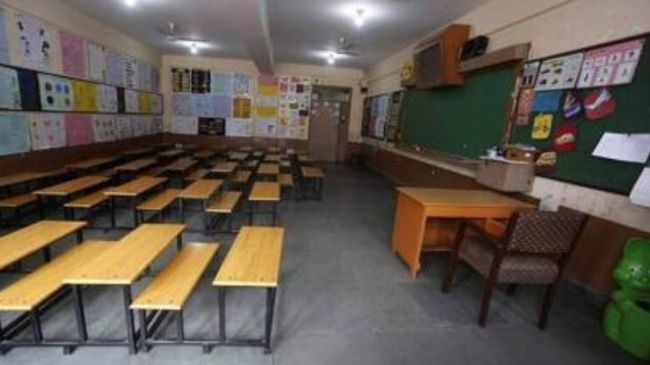Opinion Dear Editor, I Disagree: Assigning principals through a lottery will not reform Bihar’s education system
The system has led to bizarre appointments like a chemistry professor being posted to head the arts and history-oriented Patna College, a history professor being made the head of the Patna Science College, and a male history professor appointed the principal of the Magadh Mahila College.
 Information like the principal’s name, phone number, and email id, along with the school’s location, address, longitude and latitude, has to be entered in the online portal. (Express Photo)
Information like the principal’s name, phone number, and email id, along with the school’s location, address, longitude and latitude, has to be entered in the online portal. (Express Photo) This newspaper has welcomed the use of the lottery system for the appointment of five college principals in Patna University (‘Drawing Lots’, IE, July 7). I disagree with its argument that in a “system corroded by nepotism, caste and political patronage, randomisation may be an impartial arbiter”. The lottery system is, in fact, an arbitrary solution to a longstanding problem of maintaining quality checks in teachers’ recruitment in Bihar. It is akin to fixing a broken bone with an ordinary band-aid.
The irregularities in teachers’ appointments, coupled with delays in recruitment, have dented the credibility of Bihar’s already crumbling higher education system. Education and migration are key routes to escape the poverty trap in the state. The deterioration of higher educational institutions, therefore, has repercussions on the state’s development trajectory. Institutions in Bihar seem to be completely under the sway of the labharthi system. Students are no longer expected to demand and expect good quality education as a matter of right. What Bihar needs is transparency and structural changes. The editorial is right in pointing out that for decades, “government appointments in Bihar, including in its university system, have been hostage to cronyism”. But it is misplaced in asserting that an arbitrary lottery is the “necessary first step” towards reform.
The system has led to bizarre appointments like a chemistry professor being posted to head the arts and history-oriented Patna College, a history professor being made the head of the Patna Science College, and a male history professor appointed the principal of the Magadh Mahila College. Such mismatched appointments come at a time when the state government has shown itself incapable of meeting the aspirations of the youth, especially those related to higher education. Most estimates place the teacher-to-student ratio in the state’s institutes of higher education at around 1:50. In several postgraduate departments in state-run colleges, there is one teacher for 200-350 students.
The dilapidated state of higher education departments in state-run institutes like the BN Mandal University in Madhepura, where several departments from the social sciences and natural sciences streams reportedly share the same room, the delays in hiring teachers, the stopgap arrangement of mass recruitment drives and the overcrowded classrooms in coaching centres in Patna, where students from all over the state converge to learn ways of cracking entrance examinations, have pushed the state’s youth to the brink. The state’s two major mainstream political parties, the RJD and the JDU, tend to milk this situation for political gains — recruitment in educational institutions, like government appointments, is a way of providing political patronage and exercises in favouritism. More than one investigation by this newspaper has shown — and the editorial also points out — that these processes are biased towards well-connected candidates. A lottery system, as the editorial points out, might introduce “an element of neutrality”. But its rightful emphasis on fairness in recruitment procedures is considerably weakened by the editorial’s endorsement of a system that’s totally contingent on chance.
The Bihar government would do well to take a leaf out of the book of its counterparts in other states. Tamil Nadu, for example, has a Teacher Recruitment Board to appoint teachers to higher education institutes. Maharashtra is reportedly framing a policy that gives 80 per cent weightage to academic quality, research and teaching and 20 per cent weightage to on-camera interviews to bring more transparency to the recruitment process. The editorial underlines the need for “specialised selection panels, independent oversight bodies, public appointment records and rotational leadership” in future. Why not begin work on that immediately?
The writer teaches political science at Ahmedabad University




